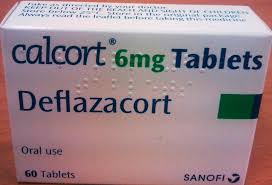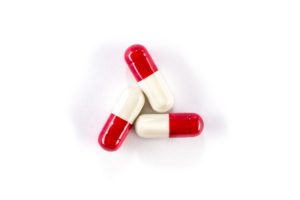by Gabriel Levitt, President, PharmacyChecker.com and Prescription Justice | Feb 22, 2017 | Advocacy, Drug Importation, Drug Prices, Pharmaceutical Industry
 Since Americans started importing medications for personal use in larger numbers at the beginning of the last decade, the Pharmaceutical Researchers and Manufacturers of America (PhRMA), Big Pharma, has engaged in media and government relations scare tactics to try and stop them. Apparently, when it comes to foreign versions of the new FDA-Approved Emflaza, which treats Duchenne Muscular Dystrophy, one board member of PhRMA supports importation!
Since Americans started importing medications for personal use in larger numbers at the beginning of the last decade, the Pharmaceutical Researchers and Manufacturers of America (PhRMA), Big Pharma, has engaged in media and government relations scare tactics to try and stop them. Apparently, when it comes to foreign versions of the new FDA-Approved Emflaza, which treats Duchenne Muscular Dystrophy, one board member of PhRMA supports importation!
Last week, I wrote about the decision of drug company Marathon Pharmaceuticals to postpone selling Emflaza over pricing concerns and how the issue shines a bright light on the benefits of personal drug importation. To summarize: some folks are outraged because Emflaza (deflazacort) was launched at a price of $89,000 for a one year supply. This seems insane when foreign versions of deflazacort, which cost 1% that amount (less than $1000), are already imported for personal use.
PhRMA is trying to distance itself from Marathon, just like it did with Martin Shkreli, former CEO of Turning Pharmaceuticals, when the price of Daraprim jumped from $13.50 to $750 a pill overnight. The CEO of Marathon, Jeff Aronin, however, sits on PhRMA’s Board of Directors! Last week, John Carroll of Endpoints News predicted last week that Aronin might be dropped. As of today, he’s still there.
Mr. Aronin wrote a letter to the Duchenne community that fully acknowledged American kids were already being treated with an unapproved foreign version of deflazacort. In his words: “As we all know, deflazacort was being used without FDA approval — and without ever having been approved anywhere in the world for Duchenne — by a very small group of patients (roughly 7 to 9 percent) in the Duchenne community who imported it from overseas.”
But does he support it? I mean, after all, the “score” for Marathon is that once it’s available for sale in the U.S., it will be purchased here. At least for the time being, this PhRMA board member does support it and seems to have no concern whatsoever whether the foreign version is safe and effective, not should he, since, like other medications, it was approved for safety and efficacy elsewhere. In noting that Marathon will “pause our commercialization” of Emflaza,” maintain its Expanded Access Patient Assistance Program, Aronin also state: “Patients currently receiving deflazacort from other sources may continue to have that option.” Damn right.
Is it hypocritical of PhRMA to diss Marathon? After all, brand drug companies jacked prices 130 times the inflation rate in 2015. Forty-five million Americans didn’t fill a prescription in 2016 due to cost. PhRMA will continue its practice of legal bribery and unleash a new, shiny PR campaign about life sciences and innovation — to prevent legislative and regulatory reforms that would lower drug prices. It’s going to take an unpredictable, unexpected populist wave of American anger at drug companies to bring their house down. In the meantime, maybe the people will take a hint from one PhRMA board member and import unapproved and lower cost medications.
Tagged with: aronin, Big Pharma, deflazacort, emflaza, marathon, phrma
by Gabriel Levitt, President, PharmacyChecker.com and Prescription Justice | Feb 16, 2017 | Advocacy, Drug Importation, Drug Prices, FDA, Personal Drug Importation

Unapproved but safe and effective…
Personal drug importation works! This week, drug company Marathon announced it is postponing the launch of Emflaza, its recently FDA-approved version of an off-patent drug called deflazacort, in the face of heavy scrutiny by Senator Bernie Sanders and Congressman Elijah Cummings over its price tag – $89,000 a year. This drug, which treats Duchenne Muscular Dystrophy (DMD), is available under the brand name Calcort in the United Kingdom at about 99% less (about $750) than the current U.S. “postponed” price. Generic versions of deflazacort are also available internationally among verified online pharmacies at an annual price tag of about $650.
For some background on the disease and treatment: DMD is a “genetic disorder characterized by progressive muscle degeneration and weakness.” It mostly afflicts boys, with onset ranging from ages 3-5. It’s caused by the absence of a protein called dystrophin. For more, see the Muscular Dystrophy Association’s (MDA) website. According to the MDA, corticosteroids, including deflazacort, help slow the disease’s progression.
For a critique of the Emflaza price read Sanders and Cummings’ letter. No one could do better than that. Marathon CEO Jeff Aronin attempts to rationalize the price here but it almost reads like an apology. They argue that no consumer will deal with the $89,000 price tag because health insurers only charge a $20 co-pay and they have patient assistance programs to help the uninsured. It’s never that perfect, at all: people always slip through the cracks and we’re not forcing people to go without needed medication or go into bankruptcy to get it. Right?
So now a fist full of truth about this medication and safe online access to affordable medicines to shine a bright light on the lifeline that is personal drug importation… (more…)
Tagged with: deflazacort, emflaza, marathon
by Gabriel Levitt, President, PharmacyChecker.com and Prescription Justice | Feb 8, 2017 | Drug Prices, Drug Safety, Generic drugs, Narrow Therapeutic Index

Joe and Terry Graedon have been helping Americans make better health decisions for the last 40 years, including through their syndicated radio show on National Public Radio called The People’s Pharmacy. As you can imagine, their listeners are interested in prescription drug safety and savings. Our CEO was on their show this past Saturday and I’d like to tell you about it, especially if you want to learn how to save money on brand name drugs.
The CEO of PharmacyChecker.com, Tod Cooperman, MD, is also the founder and president of ConsumerLab.com, the leading evaluator of health and wellness products. ConsuemrLab.com has worked with The People’s Pharmacy in the past to test prescription medications. While I believe that generics sold in the U.S. are usually of the highest quality, equal to or better than generics in most other countries, ConsumerLab.com’s findings show that some generic medications in the U.S. are not always equal to the brand. Due to his expertise is drug quality and his knowledge about drug prices, The People’s Pharmacy brought Dr. Cooperman on to their show last week to talk about Narrow Therapeutic Index (NTI) drugs. Listen to the show! (See minutes 6:50-18:00).
For NTI medications, it’s even more important that the active pharmaceutical ingredient is present in the exact amount required. When NTI medications have too much of the active pharmaceutical ingredient, it can be toxic; but those that have too little may not be adequately efficacious. Most NTI drugs are available in generic form, which usually means they are low cost, even without insurance, and usually lower-priced than in Canada and other countries, too! The opposite holds true for brands.
Some providers are deciding that it’s important for their patients stick with the brand for NTI drugs for the reasons stated above. But the prices here are often too high. In the radio show, Dr. Cooperman recommends looking internationally for those who can’t afford the brand locally. Americans can often find discounts averaging 80% internationally on Brand name NTI drugs. Last summer, when we read The Graedon’s Guide to Saving Money on Medicines, we noticed the list of NTI drugs and wanted to compare drug prices domestically and internationally. Our research from Fall 2016 is below.
Narrow Therapeutic Index (NTI) Drugs: Brand Name Price Comparison (U.S., Canada, International*)
|
|
Per Pill Cost[i] |
Potential Savings |
| Medication Name: Brand (Generic) |
Strength |
U.S[ii] |
Canada[iii] |
NZ/UK[iv] |
Canada |
Other Int’l |
Overall |
| Tegretol (Carbamazepine) |
200mg |
$2.87 |
$0.77 |
$0.57 |
73% |
80% |
80% |
| Cleocin HCl (Clindamycin) [v] |
300mg caps |
$24.00 |
$3.38 |
NA |
86% |
NA |
86% |
| Catapres (Clonidine HCl) |
0.1mg |
$3.34 |
$0.45 |
NA |
86% |
NA |
86% |
| Sandimmune (Cyclosporine) |
100mg /mL 50mL |
$664.84 |
$327.98 |
NA |
51% |
NA |
51% |
| Lanoxin (Digoxin)[vi] |
0.125mg |
$12.54 |
$0.75 |
NA |
94% |
NA |
94% |
| Depakote (Divalproex)[vii] |
250mg |
$5.73 |
$0.90 |
NA |
84% |
NA |
84% |
| Zarontin (Ethosuximide) |
250mg |
$4.51 |
$0.66 |
NA |
85% |
NA |
85% |
| Synthroid (Levothyroxine) |
100 mcg (0.1mg) |
$1.87 |
$0.35 |
$0.63 |
81% |
66% |
81% |
| Dilantin (Phenytoin) |
100mg |
$1.45 |
$0.33 |
$0.48 |
77% |
67% |
77% |
| Depakene (Valproic acid) |
250mg |
$5.76 |
$0.93 |
NA |
84% |
NA |
84% |
| Coumadin (Warfarin) |
5mg |
$3.69 |
$0.60 |
NA |
84% |
NA |
84% |
|
|
|
|
|
|
|
|
| Average Savings |
|
|
|
|
|
|
81% |
[i] Based on three month supply of medication.
[ii] Walgreens, NYC, December 2016
[iii] Prices of international online pharmacies verified by PharmacyChecker.com.
[iv] Prices of international online pharmacies verified by PharmacyChecker.com.
[v] Marketed as Dalacin C in Canad
[vi] Marketed as Toloxin in Canada
[vii] Marketed as Epival in Canada
Tagged with: generic drugs, Narrow Therapeutic Index, The People's Pharmacy, Tod Cooperman
by Gabriel Levitt, President, PharmacyChecker.com and Prescription Justice | Feb 1, 2017 | Advocacy, Patient Assistance Programs, pbm, Pharmaceutical Industry

Can Big Pharma Help Me Afford My Meds?
People who are not new to this blog know that we are often critical of the pharmaceutical industry because of their actions to stop Americans from buying lower cost medications from international online pharmacies. So, this may come as a surprise…
Today, we announced that we have added a new section on PharmacyChecker.com for consumers to search, find and apply to patient assistance programs, those sponsored by pharmaceutical companies. You can type in the name of your medication and review a very comprehensive collection of these programs, including low-cost, no-cost, and copay programs. The eligibility hurdles are often prohibitive: so please understand that for many programs, if you’re currently earning above the median income in the U.S. it’s likely that you are too rich. (more…)
by Gabriel Levitt, President, PharmacyChecker.com and Prescription Justice | Jan 27, 2017 | Advocacy, Drug Prices, Pharmaceutical Industry, Pharmacy Benefit Managers

Don’t blame poor little Big Pharma
Big Pharma is in the mood to share! A new report commissioned by the Pharmaceutical Researchers and Manufacturers of America (PhRMA), the trade association representing the world’s largest global pharmaceutical companies, seems to assert that the blame for high drug prices should be shared with pharmacy benefit managers, retail pharmacies, wholesalers, and, I think, even hospitals – and more. It appears that PhRMA’s main target is the pharmaceutical benefit managers.
Noting that President Donald Trump recently said drug companies are “getting away with murder” – I view this report as pharma’s attempt to communicate, “hey, prez, we’re not alone here in being greedy.” The report has merit, which I’ll explain below when looking at the dollar numbers. But as far as the American consumer is concerned: murder is murder. Hey, I’m just using the president’s words. Due to the killing made by pharma and friends (because they’re all friends), 10s of millions of Americans are leaving their scripts unfilled because the prices, one way or the other, are out of reach.
The report is called “The Pharmaceutical Supply Chain: Gross Drug Expenditures Realized by Stakeholders.” You can find a summary of it here but this is my take on it. (more…)
Tagged with: phrma, supply chain
by Gabriel Levitt, President, PharmacyChecker.com and Prescription Justice | Jan 20, 2017 | Advocacy, Drug Prices, Drug Safety, Policy, Politics
 In this blog post I’m going to get personal. Not about me but about importing medication from Canada and other countries. You’ll see what I mean. Last week, Senator Bernie Sanders introduced an amendment to the budget bill, which would have paved the way for future deficit neutral spending to implement new regulations expanding lawful access to lower cost imported medication from wholesalers, pharmacies and individuals. Unfortunately, the amendment was defeated 52-46.
In this blog post I’m going to get personal. Not about me but about importing medication from Canada and other countries. You’ll see what I mean. Last week, Senator Bernie Sanders introduced an amendment to the budget bill, which would have paved the way for future deficit neutral spending to implement new regulations expanding lawful access to lower cost imported medication from wholesalers, pharmacies and individuals. Unfortunately, the amendment was defeated 52-46.
Let’s forget about the fact that drug companies give members of Congress lots of money. OK, I can’t forget: it’s about two billion dollars over the last 15 years. Some senators who voted against the amendment cited their concerns with safety as a basis for their vote. Let me explain why they are wrong, at least when it comes to personal vs. wholesale drug importation. (more…)
Tagged with: Bernie Sanders, Congress, Corey Booker
 Since Americans started importing medications for personal use in larger numbers at the beginning of the last decade, the Pharmaceutical Researchers and Manufacturers of America (PhRMA), Big Pharma, has engaged in media and government relations scare tactics to try and stop them. Apparently, when it comes to foreign versions of the new FDA-Approved Emflaza, which treats Duchenne Muscular Dystrophy, one board member of PhRMA supports importation!
Since Americans started importing medications for personal use in larger numbers at the beginning of the last decade, the Pharmaceutical Researchers and Manufacturers of America (PhRMA), Big Pharma, has engaged in media and government relations scare tactics to try and stop them. Apparently, when it comes to foreign versions of the new FDA-Approved Emflaza, which treats Duchenne Muscular Dystrophy, one board member of PhRMA supports importation!






